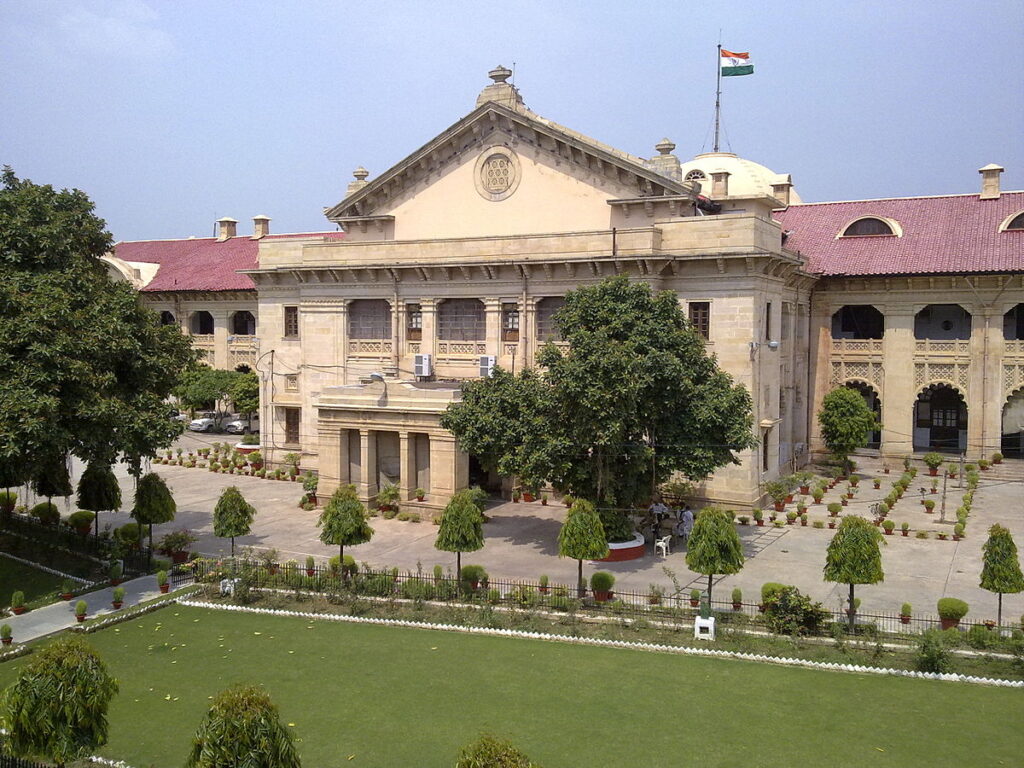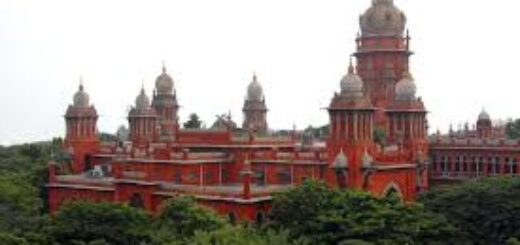The Allahabad High Court stated that an award given by an arbitral tribunal is considered a decree. It can be enforced in any location where a decree can be executed.

The Allahabad High Court emphasized that an award from the Arbitral Tribunal is considered a decree under Section 36 of the Arbitration & Conciliation Act, 1996. This means that the award can be enforced anywhere in the country where a decree can be executed. The Court was reviewing a case where the respondents’ land was taken under the National Highways Act, 1956, and they sought to enforce the award made under the Arbitration Act. Justice Neeraj Tiwari, in a Single-Judge Bench, referred to the Supreme Court’s decision in Sundaram Finance Limited Vs. Abdul Samad and Ors.: AIR 2018 SC 956, stating that the Court clarified that while an arbitral award is treated as a decree under Section 36, there is no requirement for the court where the award was made to be the one that issued the decree.
Advocate Shiv Kumar Singh represented the Petitioner, while C.S.C. Devansh Misra represented the Respondent. The case details showed that the respondents’ land was acquired for the expansion of National Highway No. 2 in District-Etawah, and compensation was set according to Section 3G(2) of the National Highways Act, 1956. If either party disagrees with the compensation amount, Section 3G(5) allows for an arbitrator appointed by the Central Government to determine the amount. In this instance, the Additional District Magistrate set the compensation amount, leading the petitioners to file for arbitration under Section 3G(5) with the Additional Commissioner appointed by the Central Government. The final award was issued in 2019.
While the appeals under the Arbitration & Conciliation Act were ongoing, the respondents sought to enforce the award through the District Judge, which was later assigned to the Additional District Judge. The petitioners raised an objection regarding the court’s jurisdiction, but it was dismissed. Upset by this decision, the petitioners turned to the High Court. They argued that the respondent’s office is located in Kanpur, where their business operates, and that the arbitration also occurred in Kanpur. Thus, they claimed that Section 36 and the provisions of the CPC should apply, making the District Judge in Kanpur the proper authority for the execution case. In contrast, the respondents argued that the arbitration process ended with the award’s announcement, meaning Section 42 of the 1996 Act regarding jurisdiction did not apply to execution proceedings. They also contended that Section 36 is a deeming provision, so the CPC provisions should not be relevant in this situation.
The main question for the Bench was whether the execution case should be filed in Kanpur or Etawah. The Bench referred to the Sundaram Finance Limited case, which stated that an award from an arbitral tribunal is considered a decree under Section 36 of the 1996 Act. It clarified that the court where the arbitral award was made does not automatically become the court that issued the decree. The Act allows for execution to be filed anywhere in the country, without needing to transfer the decree from the court that handled the arbitration. It was noted that enforcement of an award can start in any location where the decree can be executed, again without needing a transfer from the relevant court. In this case, the Bench pointed out that the dispute involved land acquisition in District Etawah, indicating that the petitioners’ property was located there.
The Bench stated that even if the petitioners’ office is in Kanpur or the arbitration award was made there, it does not affect the ability to file execution proceedings in Etawah. This is based on the interpretation by the Hon’ble Apex Court and the relevant provisions of the CPC and the Act of 1996. The Court firmly believes that the order in question aligns with the law established by the Hon’ble Apex Court. Regarding the right to challenge jurisdiction, the Bench noted that the petitioners had already appealed against the award from Kanpur under Section 34 of the Act, 1996 in the District Judge’s court in Etawah. Therefore, they have given up their right to object, and their challenge is barred by Section 4 of the Act, 1996. As a result, the Bench found no errors in the order and dismissed the Petition.
Cause Title: National Highway Authority Of India And Another v. Jagpal Singh And 2 Others [Neutral Citation-2024: AHC:175916]
Appearance:
Petitioner: Advocate Shiv Kumar Singh
Respondent: C.S.C. Devansh Misra and Advocate Devesh Kumar Verma








